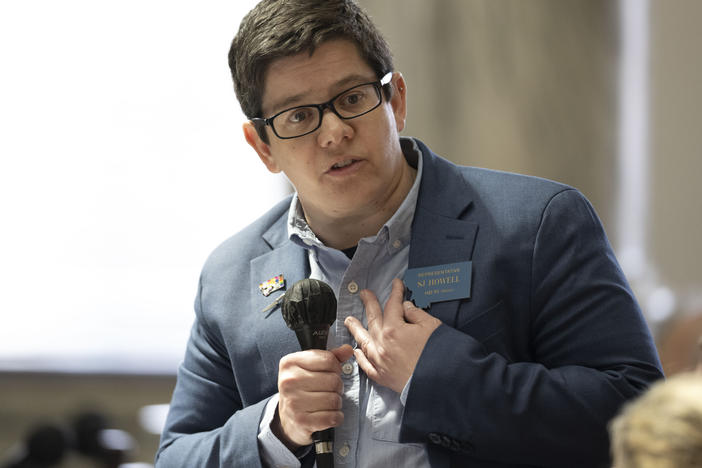Section Branding
Header Content
Biden Administration Criticized For Delay In Tackling Opioid Crisis
Primary Content
More than 200 Americans are dying from drug overdoses daily. Now the Biden administration faces criticism for reportedly delaying a Trump administration policy widely seen as a way to help save lives.
Transcript
ARI SHAPIRO, HOST:
More than 200 Americans are dying every day from drug overdoses during the pandemic. It's not clear yet how President Biden will respond. He has not yet appointed people to lead key federal agencies tackling the drug crisis. Now his team faces criticism for delaying a policy designed to help people addicted to opioids. NPR addiction correspondent Brian Mann reports.
BRIAN MANN, BYLINE: In the final days of the Trump administration, Admiral Brett Giroir, then assistant secretary for health, said with overdoses surging, doctors would be allowed to prescribe buprenorphine, a medicine widely viewed as the gold standard for treating opioid addiction, without first taking a training class and applying for a waiver.
(SOUNDBITE OF ARCHIVED RECORDING)
BRETT GIROIR: This change is earthshaking to the substance use community, and I do believe it will save thousands or tens of thousands of lives.
MANN: But The Washington Post reported yesterday the Biden administration is delaying the policy change because of legal concerns over how it was implemented.
KEITH HUMPHREYS: This is kind of bureaucratese big time.
MANN: Keith Humphreys, who studies addiction treatment at Stanford University, supported the Trump team's rule change. He says if more needs to be done to make buprenorphine more widely available, the Biden team needs to move fast. He said doctors tell him regularly they need this drug to help patients survive.
HUMPHREYS: You know, I want to get this person on buprenorphine, and there's all these hassles.
MANN: The Biden administration didn't respond to NPR's repeated inquiries. The stakes are high. Overdose deaths keep climbing, expected to top 83,000 this year. New research suggests Black communities are especially hard-hit. Humphreys said the rollback of the buprenorphine rule comes at a moment when it's unclear what the Biden team will do to cut the number of drug deaths.
HUMPHREYS: Because of the optics of this, it will increase pressure on the administration to promptly put their drug policy officials into office and to roll out a far more comprehensive plan.
MANN: Biden hasn't nominated officials to permanently lead the key agencies that focus on drug addiction. Experts interviewed by NPR acknowledge he faces an avalanche of other problems, from the pandemic to the economy. But Kassandra Frederique, who heads a group called the Drug Policy Alliance, says it's important Biden signal a focus on this crisis, too, in part because of his own history.
KASSANDRA FREDERIQUE: I don't think that Joe Biden has something to prove. What I would say is that Joe Biden has a debt to pay to communities.
MANN: During Biden's career in the Senate, he was architect of tough-on-crime drug policies that often sent Black men suffering addiction to prison rather than getting them health care or treatment. Biden has acknowledged regrets about those policies, but Frederique says the president needs to show he's committed to change.
FREDERIQUE: What we hope is that we'll be able to push this administration to design a new drug policy that's actually based in science, health and compassion.
MANN: Experts say making buprenorphine more widely available to doctors and their patients is only one part of reforms needed fast to help keep people alive.
Brian Mann, NPR News. Transcript provided by NPR, Copyright NPR.
Bottom Content


